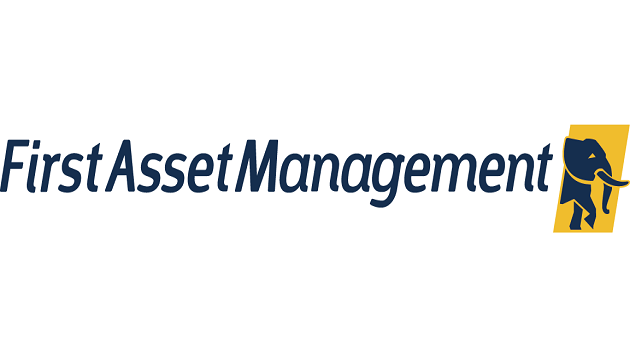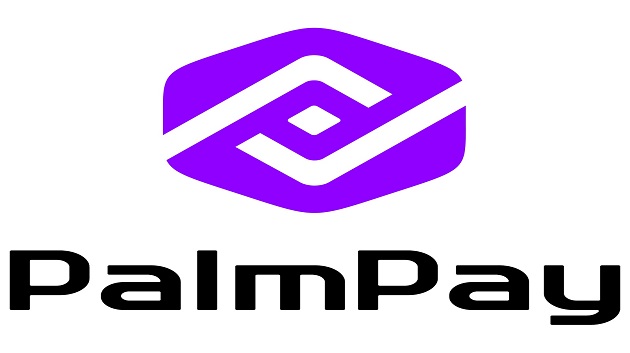E-Financial
SERAP Gives CBN 48-Hour Ultimatum to Withdraw ATM Fee Hike

Socio-Economic Rights and Accountability Project (SERAP) has called on the Central Bank of Nigeria (CBN) to immediately revoke its recent increase in Automated Teller Machine (ATM) transaction fees, describing the move as “Patently unlawful, unfair, unreasonable, and unjust.”

In an open letter addressed to Olayemi Cardoso, governor, CBN, and dated February 15, 2025, SERAP warned that the fee hike would worsen economic hardship for millions of Nigerians, particularly those at the lower end of the financial spectrum.
The rights group gave the apex bank a 48-hour deadline to reverse the policy or face legal action.
The CBN’s new directive mandated that ATM withdrawals at off-site locations, such as shopping malls, airports, and standalone cash points, will attract an N100 charge per N20,000 withdrawal.
Additionally, a surcharge of up to N500 may apply for transactions conducted at certain locations. The new fees are set to take effect from March 1, 2025.
In its letter, signed by Kolawole Oluwadare, deputy director, SRERAP criticized the policy, arguing that it would disproportionately affect struggling Nigerians while benefiting commercial banks.
“The manifestly unfair increase in ATM transaction fees will hit hardest those at the bottom of the economy and exacerbate the growing poverty in the country,” SERAP stated.
The organization further argued that financial institutions should bear the cost of banking operations, rather than shifting the burden onto customers, particularly those with limited financial means.
SERAP accused the CBN of prioritizing the interests of banks over the welfare of ordinary Nigerians, many of whom already struggle with the high cost of living.
The group pointed out that banks continue to report record-breaking profits while imposing excessive charges on customers.
“CBN policies should not be skewed against poor Nigerians and heavily in favour of banks that continue to declare trillions of naira in profits, mostly at the expense of their customers.
“The increase in ATM transaction fees will inflict misery on Nigerians and contribute to human rights abuses,” the letter read.
SERAP also noted that the policy contradicts President Bola Tinubu’s commitment to tackling poverty in Nigeria.
The rights group argued that the CBN’s action violates multiple legal provisions, including the Nigerian Constitution, the CBN Act, and the Federal Competition and Consumer Protection Act.
SERAP highlighted specific sections of these laws that prohibit unfair business practices and protect consumers from exploitative charges.
According to SERAP, the increase in ATM fees discriminates against low-income Nigerians who may struggle to afford the higher fees, creates a two-tiered financial system that favours the wealthy, contradicts the CBN’s stated mission to promote national economic well-being, and violates international human rights obligations under the United Nations Guiding Principles on Business and Human Rights,
“The CBN has responsibilities under the UNGPs to take effective steps to avoid or mitigate potential human rights harm and to consider ending any charges or transaction fees where severe negative human rights consequences cannot be avoided or mitigated,” SERAP asserted.
“We would be grateful if the recommended measures are taken within 48 hours of the receipt and/or publication of this letter.
“If we have not heard from you by then, SERAP shall take all appropriate legal actions to compel you and the CBN to comply with our request in the public interest,” the letter warned.
E-Financial
Fintech, Remittances Anchor Africa’s Booming Payments System

Africa’s Micro, Small, and Medium Enterprises, fintech industry, scaling remittances, and cross-border payments will be the driving forces behind the continent’s digital ballooning payments system, which is estimated to reach $1.5 trillion by 2030.

This is according to a MasterCard-commissioned study by Genesis Analytics, which states that the digital payments economy is growing faster on the continent.
This comes as the World Bank says Sub-Saharan Africa has shown significant growth in financial inclusion over the past decade, much of it driven by mobile money account adoption.
Dimitrios Dosis, president, Eastern Europe, Middle East and Africa at MasterCard, comments: “Africa is filled with immense possibilities, and its people have the potential to shape the global economy in the decades ahead.
“MasterCard remains deeply committed to driving digital transformation across the continent, working closely with entrepreneurs, merchants, banks, start-ups, telcos, and governments. By increasing our investments, expanding innovation, and fostering inclusion, we are helping build a more connected and accessible digital future.”
The payment technology company went on to say as a longstanding technology partner to Africa, its continues to strengthen its commitment to the continent’s digital growth through strategic investments, public-private partnerships, and innovation initiatives that drive financial health and economic growth.
In addition, it says trends in Africa signal a strong shift towards digital transactions, with businesses and consumers increasingly embracing contactless solutions, further accelerating economic participation and financial accessibility across the region.
“For over five decades, MasterCard has worked alongside African governments, businesses, and communities to advance financial inclusion and economic development.
“With Africa projected to host nine of the world’s 20 fastest-growing economies, we are focused on leveraging our expertise and a technology to support the continent’s continued digital transformation.
“Our investments today will help build a more resilient economy for the future,” says Mark Elliott, division president, Africa, MasterCard
By fostering collaboration with key stakeholders, MasterCard says it aims to enhance digital connectivity, expand economic opportunities, and enable millions of people and businesses to thrive in the digital economy.
E-Financial
First Asset Management expands into US Equity Market, Introduces FBN Blended Dollar Fund

First Asset Management, one of Nigeria’s investment managers and a subsidiary of First HoldCo Plc. has launched its FBN Blended Dollar Fund to drive up customer earnings through its rich blend of US equity and high-profile investments domiciled in Nigeria.

In its recent webinar, the company discussed the advantages of its newly launched FBN Blended Dollar Fund. First Asset Management is the first company to launch a blended fund in the equity market to maximise customer earnings.
The event was part of the First Asset Management Leading Conversations Webinar Series, which convenes financial industry experts. The session was moderated by the renowned journalist, Omohefe Osemere and featured a distinguished panel including Laura Fisayo- Kolawole, Head of Equities & Alternative Asset Management at First Asset Management; Robert Hageneers, Head of Markets at FirstBank UK; Gbolahan Ologunro, Portfolio Associate at First Asset Management; and Dr. Ayodeji Akamu, Research Associate for Energy & International Economics at First Bank of Nigeria Limited.
The panel discussion revolved around the theme, “Blending Returns in a Dynamic Global Environment: Navigating Trump’s Trade Agreement,” addressing its impact on equity markets in both Nigeria and the United States. The conversation offered insights into global investment strategies amidst ongoing economic volatility.
During the session, First Asset Management introduced the FBN Blended Dollar Fund, explaining its significance and urging investors to seize this opportunity. With a global economic landscape filled with uncertainties, investors are increasingly concentrating on strategies to blend returns across asset classes.
This year, the positive shift in investor sentiment towards Nigeria has been driven by improvement in the monetary policy framework, increased domestic crude oil production, and rising non-oil revenue supported by improved VAT and customs duty collections—factors anticipated to continue bolstering investor confidence.
Laura Fisayo-Kolawole provided insights into U.S. President Donald Trump’s new economic policies, aimed at protecting local industries and stimulating the U.S. economy. She discussed the potential long-term effects of high tariffs designed to discourage imports, noting that while there is optimism stemming from Trump’s first-term policies, the market remains volatile and the full impact of these tariffs, effective from April 2, 2025, is still uncertain.
Ike Onyia, Managing Director at First Asset Management, underscored that the FBN Blended Dollar Fund is a versatile product ideal for investors with a keen interest in growth. It offers competitive returns that can help hedge against inflation and currency risk while providing liquidity.
With a structure that allocates 20% to U.S. equities and 80% to fixed-income instruments, money market instruments, and Euro bonds domiciled in Nigeria, the fund presents diversified exposure to global markets. Onyia expressed enthusiasm about launching a product that offers a unique opportunity for investors to position themselves in an evolving economic landscape.
E-Financial
PalmPay Partners Verve to Provide Millions of Customers Access to Debit Cards

PalmPay, one of Africa’s fastest-growing fintech platforms, yesterday officially launched its new PalmPay Debit Card in partnership with Verve, Africa’s largest domestic card scheme.

This partnership reflects PalmPay and Verve’s shared commitment to driving financial inclusion by expanding access and delivering greater value across the digital payments ecosystem.
With over 35 million users and a network of 1.1 million agents and merchants across Nigeria, PalmPay is building one of the continent’s most dynamic fintech ecosystems. The launch of its debit card represents a key milestone in PalmPay’s transformation from a mobile wallet and agent network into a comprehensive digital financial services provider – offering integrated solutions for payments, savings, credit, insurance, and now, card access.
The PalmPay Debit Card is seamlessly integrated with the PalmPay wallet, combining the convenience of a traditional bank card with the speed and flexibility of a digital platform, and access to PalmPay’s unique financial ecosystem.
Key Features include:
- Zero maintenance fees
- Easy in-app application and nationwide delivery
- Exclusive cashback and merchant rewards
- Full wallet integration, including access to high-yield savings (up to 16% APR, paid daily)
- Seamless offline and online payments across the Verve network
The card is accepted at all major payment terminals within Nigeria, offering both debit and contactless options. With this launch, PalmPay aims to redefine the everyday banking experience – making it more accessible, reliable, and rewarding.
Alongside the standard debit card, PalmPay is also rolling out PalmPay Premium, a tailored offering for high-volume users. Benefits include:
- A dedicated PalmPay Premium Card
- Priority customer support
- Higher transaction cashbacks and savings interest rates
- Exclusive merchant rewards and advanced financial tools
This premium service reinforces PalmPay’s commitment to empower users at every stage of their financial journey – from first-time account holders to high-earning professionals seeking more from their financial tools.
The PalmPay Debit Card was made possible through PalmPay’s strategic partnership with Verve, reinforcing both companies’ shared commitment to inclusive, locally relevant digital banking solutions.
“PalmPay is dedicated to using technology to broaden financial access,” said Chika Nwosu, Managing Director of PalmPay Nigeria. “This collaboration enables us to offer secure, widely accepted payment cards integrated with the full power of PalmPay’s ecosystem. Together, we’re reshaping how Nigerians experience digital finance.”
Vincent Ogbunude, Managing Director of Verve International, added: “We are proud to partner with PalmPay on this important milestone. Our alliance with PalmPay reflects our shared mission of accelerating financial inclusion and delivering payment innovation that meets the needs of African consumers.”
From zero-fee transfers and high-yield savings to instant credit, insurance, and now cards, PalmPay is building the financial infrastructure of the future – redefining digital banking to be more personalised, comprehensive and accessible to everyone.

 E-Business3 days ago
E-Business3 days agoFG Plans to Link Social Register to NIN for Humanitarian Crisis

 Broadcasting3 days ago
Broadcasting3 days agoWe’re Confident in the Super Eagles – Karl Toriola

 Telecom3 days ago
Telecom3 days agoKeystone Bank Seeks to Join Suit in Tussle over 9Mobile Shares Ownership

 E-Financial3 days ago
E-Financial3 days agoFG to Harmonise Fiscal Data Across MDAs

 E-Business3 days ago
E-Business3 days agoFive WhatsApp Business Features Every Small Business Should Be Using

 News3 days ago
News3 days agoSenate Probes Federal Character Violations by NDIC, Others

 E-Financial3 days ago
E-Financial3 days agoZumax Files N4.1Bn Suit against CBN over ‘Fraudulent’ Receivership

 News2 days ago
News2 days agoCourt Throws Out Falana’s Fraud Case against Ekeh, Zinox Boss and Others

























